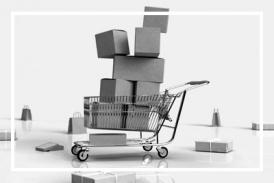From Two Founders in Switzerland to 300,000 Users: Whocan.org Goes Global
From a two-person start-up to 300,000 users: Whocan.org is shaking up the polling world and putting users first!
ZURICH, SWITZERLAND, June 2, 2025 /EINPresswire.com/ -- A two-person startup from Switzerland takes on Doodle, Google Forms & Co. with a user-first platform for polls and scheduling.
Whocan.org, a non-profit, ad-free scheduling and polling platform, officially launches in the United States. Built for educators, NGOs, student groups, and small teams, Whocan is redefining online coordination by bringing clarity, privacy, and versatility back to the table. No logins, no paywalls, no nonsense - just instant, accessible functionality.
"We missed the old Doodle – so we built something better"
When Paul Cornec and Kai Petersen founded Whocan.org in 2022, they were just two neighbors living 3 kilometers from Doodle's original HQ in Switzerland.
Frustrated by the complexity, ads, and paywalls creeping into formerly simple tools, they decided to create their own: a minimalist, multilingual platform that works instantly for a wide range of use cases.
Whocan offers polls with sliders (1–10), checkboxes, radio buttons, drop-down menus, and open questions - perfect for anything from quick opinion surveys to large-scale event coordination.
Users can optionally request participant names, emails, or phone numbers, set deadlines, and export data to Excel. No registration is ever required.
Designed for humans, not enterprises
Whether you're planning a book fair, figuring out your Friendsgiving menu, organizing a prom, or scheduling a workshop: Whocan is built for people, not corporations. Unlike Doodle, which has pivoted to enterprise services in recent years, Whocan proudly serves the individual users, teachers, student groups, clubs, and communities who just want to get things done.
"We're a team of two with no investors, no office, no pressure to monetize every click," says co-founder Kai Petersen. "That gives us the freedom to stay focused on what actually matters: building a tool that solves real problems simply."
A quiet revolution from Switzerland
Founded as a non-profit association, Whocan.org has grown to over 300,000 users across country's like Germany, Italy, France and Switzerland. It offers six languages and grew entirely through word-of-mouth.
It's already a favorite among agile coaches, grassroots organizers, and educators.
The U.S. launch marks a new chapter: bringing back the joy of simple, shared decision-making to a country that's been swamped with corporate scheduling platforms.
The last tool you'll ever need to make a plan
From neighborhood BBQs to hybrid team retrospectives, Whocan combines what others split: it's fast like When2meet, flexible like Google Forms, and structured like RSVPify – but without the bloat. Everything you need. Nothing you don’t.
Founded in 2022 by Kai Petersen (software engineer, ex-CTO) and Paul Cornec (digital strategist, IBM alum), Whocan is a Swiss non-profit that builds tools focused on user autonomy, privacy, and simplicity. With no external funding or ads, Whocan remains 100% independent and aligned with its mission: to bring back clarity and joy to online coordination.
Justin Najm
Whocan.org
email us here
Visit us on social media:
LinkedIn
Legal Disclaimer:
EIN Presswire provides this news content "as is" without warranty of any kind. We do not accept any responsibility or liability for the accuracy, content, images, videos, licenses, completeness, legality, or reliability of the information contained in this article. If you have any complaints or copyright issues related to this article, kindly contact the author above.
Automotive LiDAR Sensors Market Predicted to Skyrocket to $11.7 Billion by 2031, Expansion at a CAGR of 31.7%
Santa Clara County Fair Celebrates 81 Years July 30 to August 3, 2025
Productive Dentist Academy Announces First Clinical Calibration™ Institute Mastermind
Kalendarium
Więcej ważnych informacji
 Jedynka Newserii
Jedynka Newserii

 Jedynka Newserii
Jedynka Newserii

Konsument

Dzięki e-commerce rośnie eksport polskich małych i średnich przedsiębiorców. Wartość ich sprzedaży na Amazon przekracza rocznie 5 mld zł
Mali i średni przedsiębiorcy coraz lepiej radzą sobie na arenie międzynarodowej, choć na razie tylko niecałe 5 proc. z nich sprzedaje swoje produkty za granicę. Duże możliwości ekspansji zagranicznej dają im e-commerce i współpraca z marketplace’ami. Za pośrednictwem Amazon w 2024 roku polskie MŚP sprzedały produkty za ponad 5,1 mld zł. Model sprzedaży sklepu umożliwia przedsiębiorcom z Polski działanie na skalę, która jeszcze kilka lat temu wydawała się zarezerwowana głównie dla największych marek
Polityka
Większość Polaków sprzeciwia się wprowadzeniu euro. Problemem może być brak dobrej komunikacji

– Polska należy do siedmiu krajów UE, które do tej pory nie wprowadziły jeszcze euro. Choć zobowiązaliśmy się do przyjęcia wspólnej waluty w traktacie akcesyjnym, nigdy nie podjęliśmy konsekwentnych działań w tym kierunku – ocenia europosłanka Nowej Lewicy Joanna Scheuring-Wielgus. W dodatku tylko co czwarty Polak jest zwolennikiem zmiany waluty. Również obecna sytuacja gospodarcza – wysoka inflacja i rosnący deficyt – nie sprzyjają dyskusji o przyjęciu euro.
Handel
Źle wprowadzony system ROP może oznaczać duży wzrost cen dla konsumentów. Podrożeć mogą produkty spożywcze

Ministerstwo Klimatu i Środowiska proponuje powierzenie NFOŚiGW zadań organizacji odpowiedzialności producenta, która w imieniu producentów będzie realizowała obowiązki wynikające z ROP w ramach zamkniętego obiegu finansowego. Przedstawiciele Polskiej Federacji Producentów Żywności i sektora odzysku odpadów ostrzegają, że może utrudnić to Polsce wypełnienie unijnych wymogów w zakresie selektywnej zbiórki odpadów, a co za tym idzie, może się wiązać z karami, a w konsekwencji – ze wzrostem cen.
Partner serwisu
Szkolenia

Akademia Newserii
Akademia Newserii to projekt, w ramach którego najlepsi polscy dziennikarze biznesowi, giełdowi oraz lifestylowi, a także szkoleniowcy z wieloletnim doświadczeniem dzielą się swoją wiedzą nt. pracy z mediami.









.gif)

 |
| |
| |
|